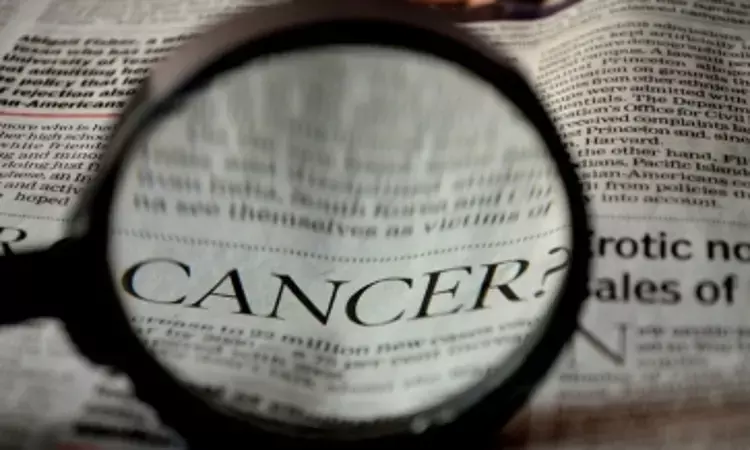- Home
- Medical news & Guidelines
- Anesthesiology
- Cardiology and CTVS
- Critical Care
- Dentistry
- Dermatology
- Diabetes and Endocrinology
- ENT
- Gastroenterology
- Medicine
- Nephrology
- Neurology
- Obstretics-Gynaecology
- Oncology
- Ophthalmology
- Orthopaedics
- Pediatrics-Neonatology
- Psychiatry
- Pulmonology
- Radiology
- Surgery
- Urology
- Laboratory Medicine
- Diet
- Nursing
- Paramedical
- Physiotherapy
- Health news
- Fact Check
- Bone Health Fact Check
- Brain Health Fact Check
- Cancer Related Fact Check
- Child Care Fact Check
- Dental and oral health fact check
- Diabetes and metabolic health fact check
- Diet and Nutrition Fact Check
- Eye and ENT Care Fact Check
- Fitness fact check
- Gut health fact check
- Heart health fact check
- Kidney health fact check
- Medical education fact check
- Men's health fact check
- Respiratory fact check
- Skin and hair care fact check
- Vaccine and Immunization fact check
- Women's health fact check
- AYUSH
- State News
- Andaman and Nicobar Islands
- Andhra Pradesh
- Arunachal Pradesh
- Assam
- Bihar
- Chandigarh
- Chattisgarh
- Dadra and Nagar Haveli
- Daman and Diu
- Delhi
- Goa
- Gujarat
- Haryana
- Himachal Pradesh
- Jammu & Kashmir
- Jharkhand
- Karnataka
- Kerala
- Ladakh
- Lakshadweep
- Madhya Pradesh
- Maharashtra
- Manipur
- Meghalaya
- Mizoram
- Nagaland
- Odisha
- Puducherry
- Punjab
- Rajasthan
- Sikkim
- Tamil Nadu
- Telangana
- Tripura
- Uttar Pradesh
- Uttrakhand
- West Bengal
- Medical Education
- Industry
Families of Men with azoospermia and severe oligozoospermia more exposed to cancer risk: Study

A recent study published in the Human Reproduction found the familial multicancer patterns among men with azoospermia and severe oligozoospermia by offering valuable insights into the heterogeneity of cancer risk within these subfertility groups. The research utilized extensive population data to analyze cancer risks among families of subfertile men.
This study involved a retrospective cohort of 786 subfertile men including azoospermic and severely oligozoospermic individuals who were matched with fertile population controls. The research identified family members up to third-degree relatives for both subfertile men and controls with over 337,754 individuals over a period from 1966 to 2017.
The findings revealed distinct familial cancer patterns in the azoospermia and severe oligozoospermia cohorts that indicates variations in cancer risk not only between different types of subfertility but also within subfertility types. Also, this study identified significant increases in cancer risks in specific types among both cohorts when compared to control families.
In the azoospermia cohort, the increased risks were observed for bone and joint cancers, soft tissue cancers, uterine cancers, Hodgkin lymphomas, and thyroid cancer. The severe oligozoospermia cohort showed higher risk for colon cancer, bone and joint cancers and testis cancer, along with a decreased risk of esophageal cancer.
This analysis identified multiple clusters of familial multicancer patterns within both cohorts, with some expressing elevated cancer risks across various types. Certain clusters expressed increased odds of cancer diagnoses at young ages by including adolescent and young adult diagnoses, as well as pediatric cancer diagnoses.
Despite the strengths of the study, including comprehensive population data, the outcomes acknowledge limitations such as the lack of semen measures for fertile men and the absence of information on medical comorbidities and lifestyle factors. The implications of these findings are significant by offering a new opportunity for focused gene discovery and environmental risk factor studies.
Source:
Ramsay, J. M., Madsen, M. J., Horns, J. J., Hanson, H. A., Camp, N. J., Emery, B. R., Aston, K. I., Ferlic, E., & Hotaling, J. M. (2024). Describing patterns of familial cancer risk in subfertile men using population pedigree data. Human Reproduction, dead270. https://doi.org/10.1093/humrep/dead270
Neuroscience Masters graduate
Jacinthlyn Sylvia, a Neuroscience Master's graduate from Chennai has worked extensively in deciphering the neurobiology of cognition and motor control in aging. She also has spread-out exposure to Neurosurgery from her Bachelor’s. She is currently involved in active Neuro-Oncology research. She is an upcoming neuroscientist with a fiery passion for writing. Her news cover at Medical Dialogues feature recent discoveries and updates from the healthcare and biomedical research fields. She can be reached at editorial@medicaldialogues.in
Dr Kamal Kant Kohli-MBBS, DTCD- a chest specialist with more than 30 years of practice and a flair for writing clinical articles, Dr Kamal Kant Kohli joined Medical Dialogues as a Chief Editor of Medical News. Besides writing articles, as an editor, he proofreads and verifies all the medical content published on Medical Dialogues including those coming from journals, studies,medical conferences,guidelines etc. Email: drkohli@medicaldialogues.in. Contact no. 011-43720751


